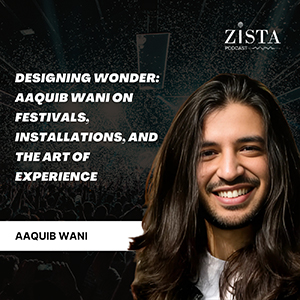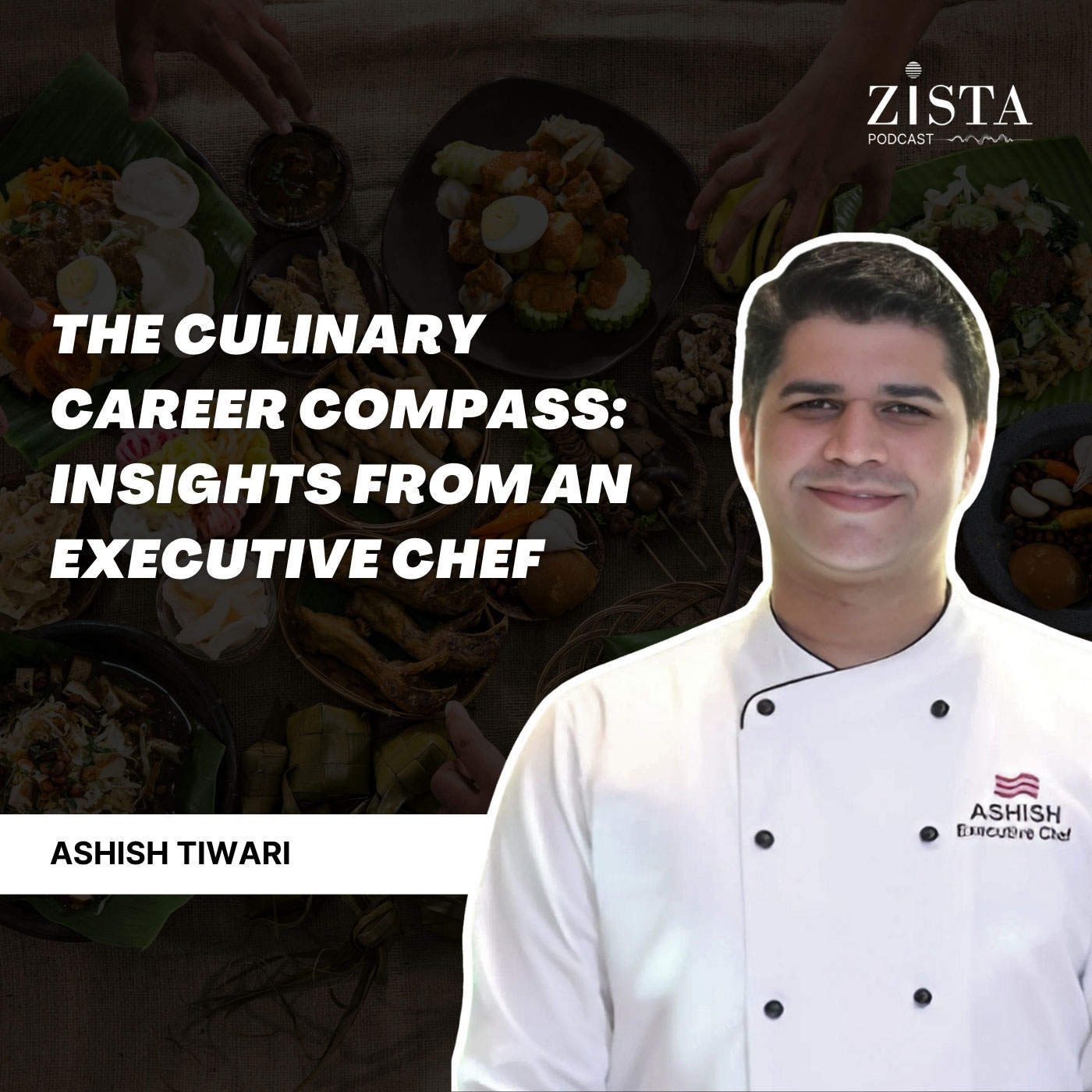The Future of Aerospace Technology and Education in India – S2
Welcome back to The Zista Podcast for Part 2 of our series, ‘The Future of Aerospace Engineering’. As we continue our exploration, this episode brings additional insights and details to the captivating field of aerospace technology.
Rejoining us is Dr. Kiran, an esteemed aerospace engineering expert with a diverse background from India to Germany. His experiences at ISRO and the Vikram Sarabhai Space Center, coupled with his leadership role at Skyroot Aerospace, provide a unique perspective on current aerospace trends. This episode dives into critical questions for those intrigued by aerospace engineering, examining the educational and professional contrasts between India and other countries. Dr. Kiran also discusses how his material science expertise has shaped his research and development role.
Moreover, we focus on the emerging opportunities within the aerospace engineering sector, providing valuable insights for career development. Dr. Kiran offers his seasoned advice to aspiring entrepreneurs looking to venture into engineering startups. This episode is a treasure trove of knowledge for students, professionals, and enthusiasts, offering a deeper understanding of aerospace engineering advancements. Tune in for an informative session that will expand your horizons in the aerospace sector.
Welcome back to The Zista Podcast for the second part of our exciting series, ‘The Future of Aerospace Engineering’. Continuing our exploration, this episode brings more depth and detail to the fascinating world of aerospace technology.
We’re thrilled to have Dr. Kiran with us again, a renowned aerospace engineering expert with a rich background across India and Germany. His journey through ISRO and the Vikram Sarabhai Space Center, and his current role in leading research at Skyroot Aerospace, make him an invaluable source of information on the latest trends in aerospace.
In this episode, we’re focusing on key questions that are crucial for anyone interested in the field of aerospace engineering. We’ll examine the differences in studying and working as an aerospace engineer in India versus other countries. Dr. Kiran will share how his expertise in material science has influenced his current role in research and development, as well as strategic planning.
Additionally, we’ll cover the opportunities that are emerging in the aerospace engineering sector, providing insights for those looking to build a career in this field. And for the aspiring entrepreneurs, Dr. Kiran shares his advice on starting an engineering startup, drawing from his extensive experience.
This episode is packed with actionable insights and firsthand knowledge, making it a must-listen for students, professionals, and enthusiasts in the aerospace domain. Tune in to this episode for a comprehensive session that promises to broaden your understanding and keep you updated on the latest advancements in the field of aerospace engineering.
- Ethics are a cornerstone of success in the aerospace sector, where even minor errors can have serious consequences. Maintaining integrity in research and decision-making is crucial, especially in ‘high-stakes’ environments.
- In the aerospace engineering sector, it’s essential to prioritize continuous learning and skill development throughout one’s career.
- it is important for an individual to prioritize establishing themselves in their chosen field rather than focusing solely on financial rewards. A strong foundation leads to future growth and opportunities.
- Aspiring aerospace entrepreneurs learn the importance of balancing innovation with a strong business model, emphasizing the need for both creativity and practicality in their endeavors.
QUESTIONS
Q1. What are the key differences between studying aerospace engineering in India and abroad?
A: Dr. Kiran notes that aerospace engineering is crucial in strategic sectors like space, defense, and atomic energy, which form a country’s backbone. He points out that these sectors are highly guarded worldwide, limiting information outflow. When studying aerospace engineering abroad, one might face restrictions in gaining practical experience in these strategic sectors. The knowledge acquired may not meet the expectations set by the global strategic sector landscape. Conversely, studying in India allows more freedom to work across various strategic sectors. Although there are limitations, they are gradually being addressed by favorable government policies aimed at infrastructure development. Dr. Kiran emphasizes the importance of a mindset shift among students, from relying on imports to focusing on indigenous development. He cites the example of 3D printers, where instead of importing, students should aim to build their own, fostering infrastructure development and overcoming reliance on foreign technology. This approach not only enhances learning but ensures sustainability, as locally developed infrastructure doesn’t face obsolescence due to unavailable parts or spares, unlike imported technology. Building our own infrastructure ensures its longevity and adapts to the country’s specific needs.
Q2: How has your background in material science and engineering influenced your role in R&D and strategic initiatives?
A: Dr. Kiran’s fascination with new technologies dates back to his childhood, recalling a pivotal experience with a GPS system during a field trip with his mother in Karnataka. Initially skeptical about the device’s usefulness, this early encounter with emerging technology sparked his inquisitive nature. His childhood was marked by building electronic gadgets, a hobby he cherishes as foundational to his career.
Key influences in Dr. Kiran’s development were his teachers, who provided essential guidance and instilled in him the values of education and character. His PhD studies under the mentorship of ethical leaders like Professor Propen and Professor Kingler further shaped his professional ethos. A critical lesson from his professors was the importance of sharing knowledge and the learning that comes from teaching others. This philosophy of open communication and continual learning is something Dr. Kiran advocates strongly in the field of R&D.
Ethical practices have been a cornerstone of Dr. Kiran’s career. He recounts occasions where he chose not to add his name to research papers for ethical reasons, underscoring his commitment to integrity. He believes that this ethical approach is crucial, especially in the aerospace sector, where errors can have far-reaching and serious consequences.
Dr. Kiran’s career journey, including significant contributions at ISRO and his decision to join a startup, reflects his continuous pursuit of learning and passion for innovation in material science and engineering. These experiences have been instrumental in shaping his approach to research and development and strategic initiatives in his current role.
Q3. What should students focus on when they start their aerospace engineering career?
A: Dr. Kiran emphasizes the importance of deeply understanding one’s chosen career path when embarking on a professional journey. While financial rewards are significant, he underscores the equal importance of the learning curve, especially in the initial stages. Rather than being solely money-driven, individuals should prioritize learning and skill development, early in their careers. The primary goal should be to establish oneself in the chosen field, as this will naturally lead to growth and adaptability. Continuous learning is essential, and one should never assume that their education is complete. Dr. Kiran believes that the pursuit of knowledge is an ongoing process, and when the learning curve stops, it signifies the end of growth. .
Q4: What advice would you give to aspiring entrepreneurs starting their engineering startup?
A: Dr. Kiran advises aspiring entrepreneurs to take action promptly. He highlights that success in building an engineering startup requires attention not only to the idea but also to the financial and business aspects. It’s crucial to give equal importance to crafting a strong business model and not neglect it in the pursuit of innovation.




